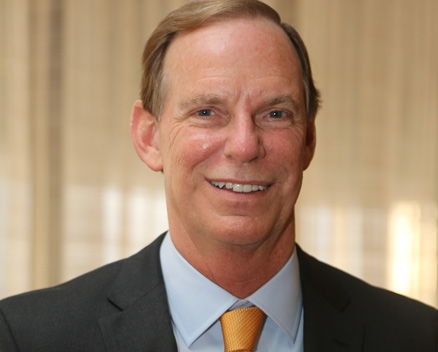letter from the president

Dear brothers,
It is an honor and a privilege as your president to have the opportunity to share my message with you in each edition of the Quarterly. I generally try to align my comments with specific items highlighted in each publication. This time, however, I want to return to the theme “living our Principles,” which I touched upon in a previous article. As you may recall, I attempted to outline and describe how utilization of the Four Founding Principles could help undergraduates make good decisions and build better men. It occurred to me that the application of our values to undergraduates only is too limiting. These Principles are indeed critical for each of us at this particularly turbulent time in our society.
As I was flying back recently from the Delta Upsilon International Fraternity Board of Directors meeting in Arizona, I glanced through the February 2017 edition of Southwest: The Magazine. Gary Kelly, chairman and CEO of Southwest Airlines, had written an article titled “Embracing Civility and The Golden Rule.” He stated in part:
“I have concern that, as a society, we are becoming more divisive and less civil toward each other. I see it in politics and the media, and I especially see it online in social media forums. I’m sure smart people could debate why this has become so prevalent—and I certainly don’t propose to have all the answers. What I do know is that a little civility goes a long way. And an abundance of civility could bring us all closer together, help us understand each other, and make us stronger.”
He goes on to say, “In my experience, I have found that interpersonal conflict often results from a lack of understanding. The more we listen to each other, the more likely we are to engage in civil discourse and achieve an understanding. In those meaningful interactions, we find the good in one another. It’s not always easy—or even pleasant—to try to understand another perspective. It challenges us and, perhaps, makes us question our own strongly held beliefs. But it also serves to open our minds and our hearts to our fellow neighbor. It has to start with a desire to listen, to understand, and to be tolerant of different points of view and a desire to be reasonable, patient and respectful.”
Kelly concludes that it is the diversity of Southwest’s people and “treating others like you would want to be treated” that has made the organization successful. In a similar way, Stephen Covey’s widely read “Seven Habits of Highly Effective People” takes a “values-based” approach to organizational success.
For DU to be a successful organization, we too, must be able to work effectively with our varied constituents: undergraduates, parents, alumni, higher education professionals, etc. These groups come at things very differently. As we seek to better understand diverse perspectives, it can be extremely helpful to frame our discussions in terms of the Four Founding Principles. Am I being fair (Justice)? Am I being civil (Friendship)? Am I really listening and being open-minded (Culture)? Am I presenting myself as a trustworthy and respected individual (Character)?
It never ceases to amaze me how profound our Principles are. Beyond being effective, they give us a sense of calm and reason in a world that often seems teetering out of control. We could all certainly do worse than to embrace and model our Principles in our day-to-day interactions.
Fraternally,
E. Bruce McKinney, Missouri ’74
President, Delta Upsilon International Fraternity
Email: ihq@deltau.org
